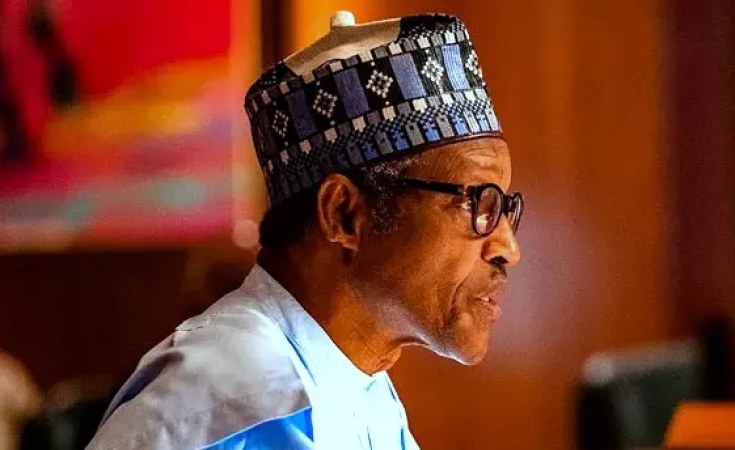"We made some difficult choices," the Nigerian leader said before apologising for some of the negative impacts of the policies.
President Muhammadu Buhari has apologised for some economic policies of his administration that caused suffering to Nigerians.
Mr Buhari gave the apology in a farewell speech delivered Sunday morning.
"We made some difficult choices," the Nigerian leader said before apologising for some of the negative impacts of the policies.
While he noted that most of the tough choices "yielded the desired results," he said, "Some of the measures led to temporary pain and suffering for which I sincerely apologised to my fellow countrymen, but the measures were taken for the overall good of the country."
Mr Buhari said the Nigerian economy has become more resilient due to the various strategies to ensure that our economy remained afloat during global economic downturns.
"You would all recall the supply chain disruptions and economic downturn that the world witnessed between 2020 and 2022 due to the COVID-19 pandemic. The deftness of our response to the pandemic still remains a global best practice," the president said.
The Nigerian president, whose tenure elapses in less than 24 hours, stated further that under his watch, the government increased the ability of the poor and rural Nigerians to earn a living, provided more food for millions across villages, and gave women opportunities to make a living.
"Young men and women in urban centres were also supported to put their skills into productive use. Our administration also provided an enabling environment for the private sector to engage in businesses for which their return on investments is guaranteed," Mr Buhari said.
He said the private sector proved a strong partner in the government's drive to build a resilient and sustainable economy, as evidenced by the growing number of turn-key projects in various sectors of the economy.
However, available significant metrics show Mr Buhari failed in key areas of development as Nigeria's president in the past eight years of his administration.
Although the government initiated policies and programmes that it claimed impacted Nigerians, Mr Buhari's eight-year reign as president has seen the nation wriggle through numerous challenges as poverty worsened while inflation and unemployment climbed to the highest levels under him. Based on this and several other factors, many Nigerians believe the Buhari administration has performed way below his promises to Nigerians while seeking office eight years ago.
Policy Failures
Some of the key policies initiated under the Buhari-led administration to improve the country's economy and the livelihoods of the citizens are the Anchor Borrowers Program (ABP), Trader Moni, National Feeding Programme, the N-power initiative, and the controversial Naira redesign policy.
The ABP initiative was designed to boost Nigeria's food self-sufficiency and improve foreign exchange earnings to diversify the country's oil-dominated economy to agriculture. Although the program increased the yield of some key crop commodities like maize and rice within the last eight years, the substantial investment in the sector over this period has not reflected in the country's food availability, affordability and accessibility, with millions of Nigerians struggling to purchase food amidst rising food inflation and poor income.
The ABP programme was equally fraught with allegations of fraud and mismanagement.
The TraderMoni programme was designed to help petty traders expand their trade by providing collateral-free loans of N10,000. The loans are said to be repayable over six months, and under the scheme, beneficiaries can get access to a higher facility ranging from N15,000 to N50,000 when they repay N10,000 within the stipulated time.
The impact of this policy was not significantly felt among millions of petty traders in the country, as many believed that the initiative was hijacked by the political elites for the benefit of their followers. The programme was equally fraught with transparency issues as the criteria for selecting beneficiaries, and their data remain hidden, fueling allegations of corruption and nepotism.
The N-Power Programme was built to address the issue of youth unemployment and help increase social development, but the impact has been minimal as available data shows that the country's unemployment figures have been on a steady rise since Mr Buhari assumed power. Between May 2015 and May 2022, the country's unemployment rate has more than tripled. Current NBS data shows Nigeria's unemployment rate is 33.3 per cent, translating to 23.2 million people, the highest in nearly two decades and the second-highest globally.
Shortly after Mr Buhari took over power in 2015, Nigeria's unemployment rate skyrocketed to 9.9 per cent in the third quarter of that year from 8.2 per cent in the second quarter, data from the country's statistics office, NBS, showed.
Within the past eight years of his reign, unemployment, poverty, and economic disempowerment have troubled millions of Nigerians, pushing many citizens to abandon the country to seek greener pastures abroad.
The last poverty survey from the NBS revealed that 63 per cent of the Nigerian population is multidimensionally poor as against 53 per cent before 2015 when Mr Buhari emerged as president.
Recently, to implement the Central Bank of Nigeria's new naira redesign policy, widespread chaos erupted across the nation as frustrated Nigerians staged protests amid poor banking operations. The CBN Governor, Godwin Emefiele, listed the benefits of the redesigned naira notes to include enhanced security, greater durability, attractiveness and promotion of rich cultural heritage and also to curb vote buying during the last general elections.
However, poor policy implementation plunged millions of Nigerians into unprecedented hardship and wanton destruction of public infrastructure across the country by aggrieved Nigerians.


